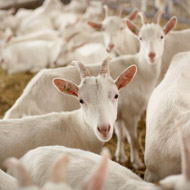Calls for Brucellosis vaccine after outbreak in India

The disease is a highly contagious zoonosis and can spread easily from animals to humans via unpasteurised milk and cheese from infected animals.
A brucellosis outbreak involving more than 50 cows in India has highlighted the need for greater disease control, experts say.
The latest outbreak occurred in the town of Tirumala in July and follows a similar outbreak in February, during which a dozen cows contracted the disease. The infected animals were segregated to prevent further infection.
It is estimated that 500,000 new human cases of brucellosis are reported annually across the globe. The World Health Organisation attributes around 400,000 of these cases to food-borne routes.
The disease is a highly contagious zoonosis and can spread easily from animals to humans via unpasteurised milk and cheese from infected animals.
Sascha Al Dahouk, scientific director at the German Federal Institute for Risk Assessment, says these cases serve as a reminder that an effective vaccine is needed to control the disease.
“We have these highly endemic regions where it's very important to introduce control. This control is mainly based, at the beginning, on vaccination. Afterwards, when it is controlled, surveying and culling is the better model, but at the beginning in the high endemic regions vaccination is definitely needed.”
He adds: “If you stop brucellosis in livestock, you definitely stop it in humans: this is the key.”
Brucellosis is endemic in a number of developing countries and can result in reduced productivity, costing smallholder farmers in South-East Asia and Sub-Saharan Africa around $500 million per year.
Further hotspots have also been found in the Mediterranean area and the Arabian Peninsula, according to Dr Al Dahouk.
“There are a lot of white spots on the map in Africa, some parts of South America where we do not know whether brucellosis is endemic – more specifically in goats and sheep, or in cattle.”
The AgResults Brucellosis Vaccine Development Prize is a $30 million competition to incentivise the creation of a new vaccine for Brucella melitensis in small ruminants across the developing world. Three prizes of $100,000 have already been awarded, and seven such prizes remain available in phase one of the competition, which closes on 18 November 2017.



 The latest
The latest